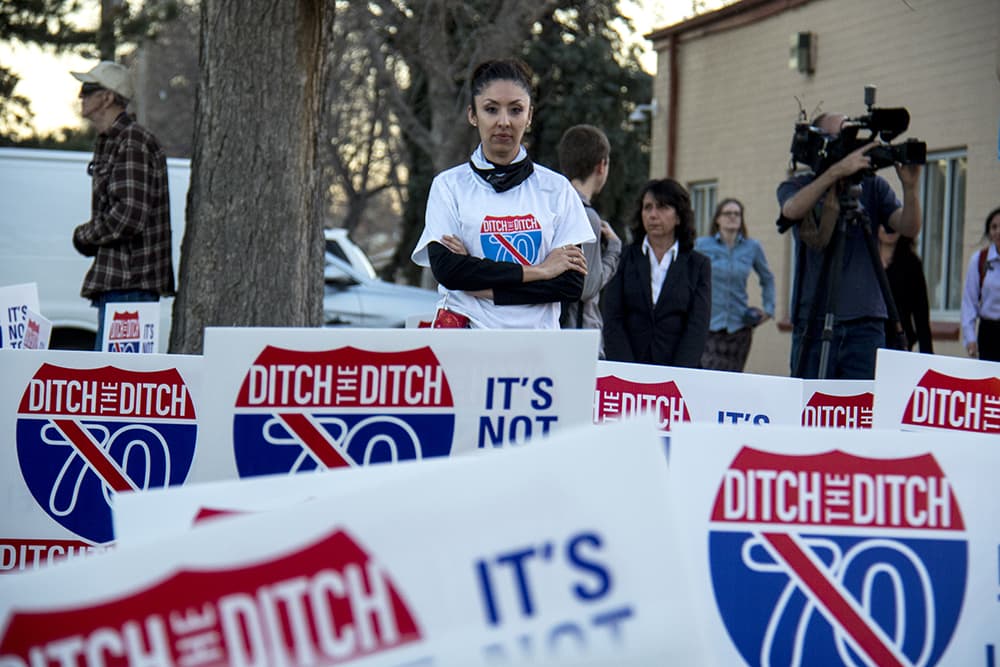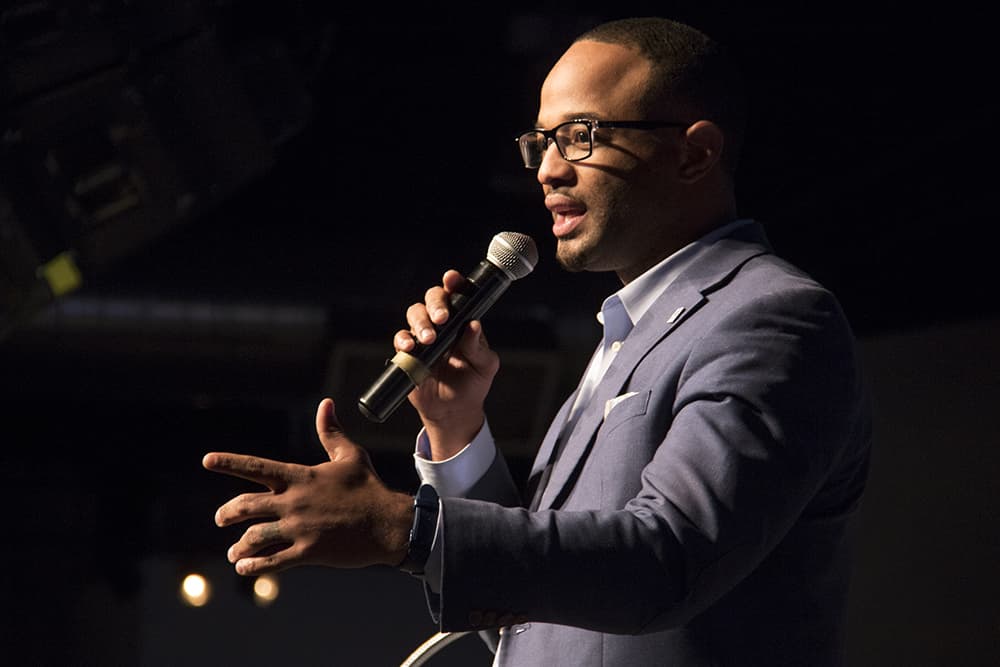
Candi CdeBaca, founder of the Cross Community Coalition and executive director of Project VOYCE, filed paperwork Friday to run for the District 9 council seat currently held by Council President Albus Brooks.
The large district includes downtown Denver, Five Points and Globeville, Elyria-Swansea, a diverse constituency with sometimes conflicting interests. Brooks has represented the area since 2011 and was re-elected in 2015.
The election isn't until May 2019, but CdeBaca, who has been discussing a run for some time, made up her mind after hearing Brooks discuss gentrification and the controversy around Ink! Coffee on Colorado Public Radio.
"He didn't understand the nuances of involuntary displacement," she said. "That is directly connected to his power and his purview. He should know all of the ins and outs of it."
In particular, she was struck by a comment Brooks made that displacement doesn't affect homeowners.
"Displacement is not in the home ownership category," Brooks said. "It's in the rental category and someone cannot afford what their landowner is jacking up the price with, right? And so, that is something that we are working very hard on."
You can read a transcript of the entire CPR interview here.
In an interview, Brooks defended his record.
"All of the work that we've been doing shows that we understand gentrification, and it's allowed people to stay in their homes and not be displaced," he said. "Now, it's moving very fast, and we need to put more money into these policies, but all the policies we're implementing show that we understand it and we're following best practices."
Brooks cited the preservation ordinance, which gives the city right of first refusal to buy properties whose affordable housing covenants are expiring, the creation of the affordable housing fund and the pending creation -- not formally announced yet -- of a legal defense fund to help people facing evictions.

"We have more deed-restricted (affordable) properties in District 9 than anywhere else in the city, and that doesn't happen by accident," he said. "It happens by leadership."
Renters are more vulnerable, but low-income homeowners, particularly those on fixed incomes, can end up forced to sell due to rising property taxes or expensive repairs on older homes. Community members also describe sometimes predatory practices on the part of real estate agents.
CdeBaca grew up in Elyria-Swansea and lives now in her grandmother's house in the shadow of Interstate 70. She's not immediately threatened by the planned by the expansion of the highway, but she's been a prominent voice in opposition to the project. She also works to empower young people through Project VOYCE, an organization she co-founded.
CdeBaca, who supports the creation of neighborhood-level community land trusts, said the solutions don't just require more money. They need to be centered on community needs. And the city's entire approach to land use and zoning needs to reflect how those policies affect the most vulnerable, she said.
Gentrification is expected to shape the 2019 election.
CdeBaca said she expects to be part of a slate or coalition of candidates seeking to change the city's approach to growth and development.
"I am one small piece of the puzzle," CdeBaca said. "Me alone winning would not make much of a difference. What I do support is running multiple people in multiple seats and backing a strong candidate for mayor who can replace the incumbent."
The Denver Post's Jon Murray predicted a more contentious election in 2019 than in 2015, when Mayor Michael Hancock was essentially unopposed, as the city grapples with big questions like gentrification and everyday annoyances like traffic. (Also in the Post, Hancock responded at length to the accusation that he's too friendly with developers.)
Denver pollster Floyd Ciruli wrote on his blog that the passage of the Our Denver general obligation bonds by a large margin reflects well on Hancock's re-election prospects, but he also warned that the mayor needs to demonstrate in concrete ways that he understands the pressures people face.
"The election is more than a year and a half away, and Hancock will likely need more strategies on affordable housing and neighborhood development to keep the anti-growth politics manageable," Ciruli wrote.
CdeBaca said she expects to be at a significant financial disadvantage in the race, but she hopes to mobilize voters who were less active before. In 2015, Brooks was elected with fewer than 5,000 votes, and fewer than 8,000 people voted at all in the District 9 council race.
"Our focus will be on activating those people who have not been active," she said. "A lot more people are paying attention than ever before."
Brooks said he welcomed the debate.
"Running for office, you should always have an opponent," he said. "I'm happy that Candi is running, and I'm happy to let the voters decide based on our history in the neighborhood, expertise in getting things done, our ideas, and what leader can bring about transformation in the community."












